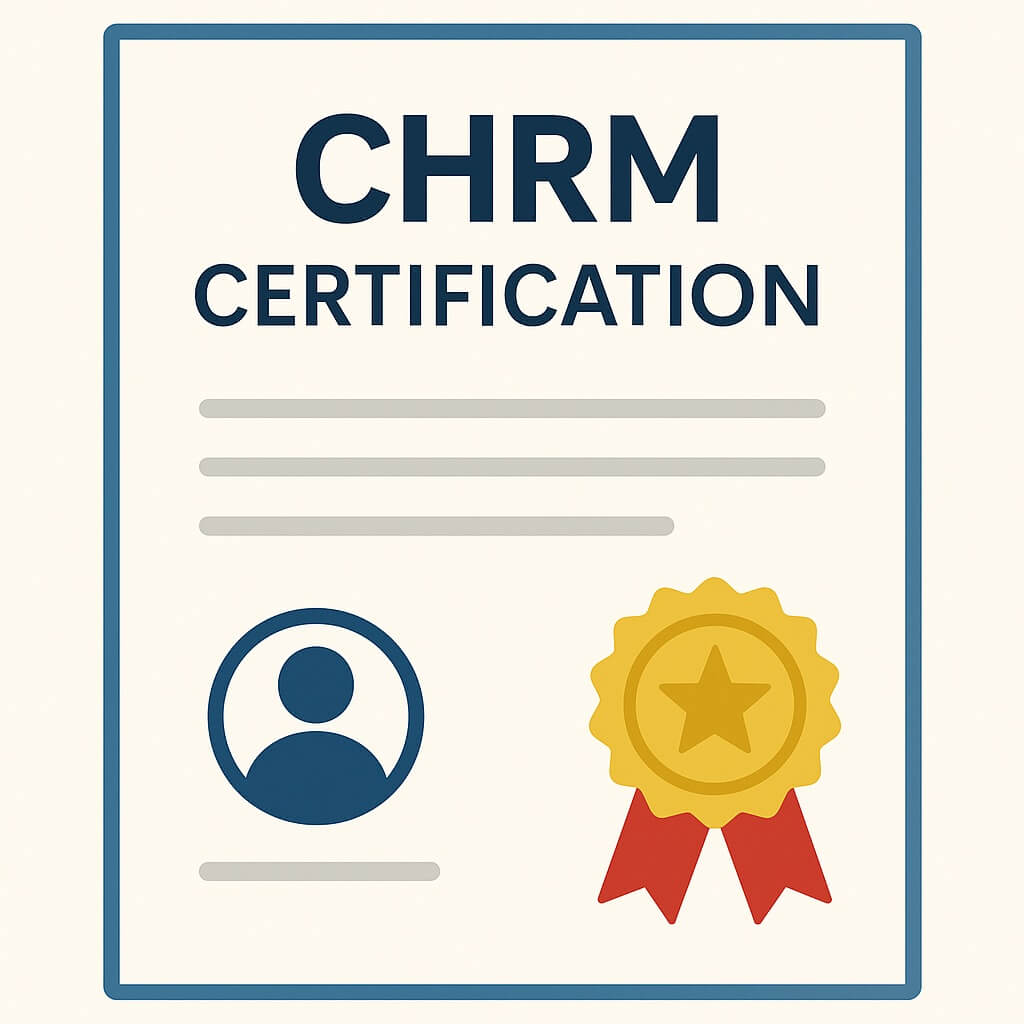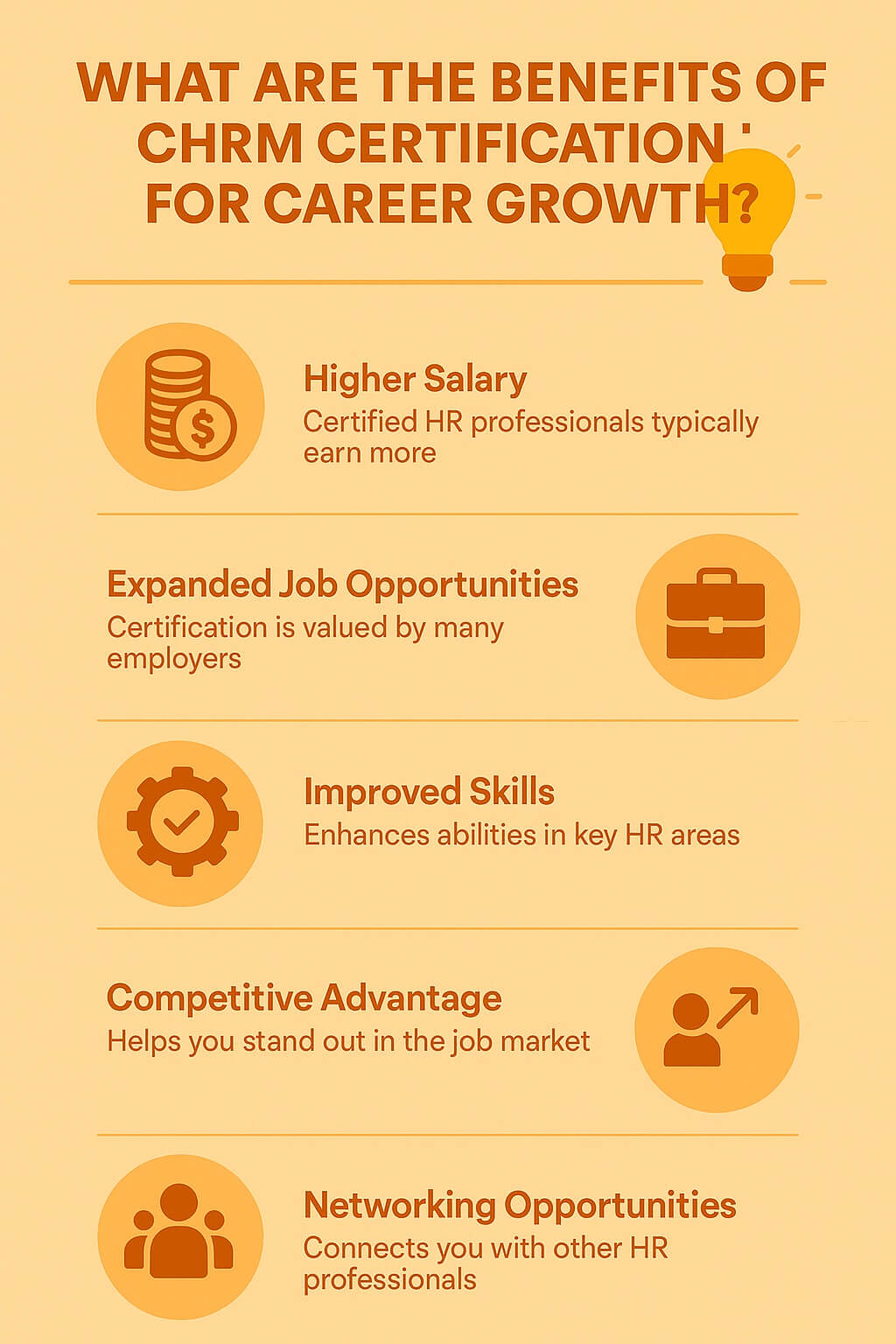If you’re thinking about boosting your skills in human resources management, you might have come across the CHRM certification. This guide dives deep into whether pursuing this credential makes sense for your professional growth. We’ll break it down using common questions people ask when considering this path, helping you decide if it fits your goals in the HR field.
What Is CHRM Certification?
CHRM stands for Certified Human Resources Manager, a program designed to build strong skills in handling people-related tasks within companies. It covers key areas like hiring new team members, managing employee performance, ensuring fair pay structures, and dealing with workplace rules. This certification aims to prepare you for mid-level roles where you oversee HR operations and help shape team strategies. Unlike basic entry-level courses, it focuses on practical tools and real-world scenarios, making it a step up for those already working in the field or looking to move into management. Many who pursue it find it helps bridge the gap between everyday HR duties and more strategic responsibilities, offering a mix of online learning, quizzes, and case studies to test your understanding.

Is CHRM Certification Legit?
Yes, CHRM certification comes from established providers in the HR training space, and it’s recognized as a valid way to demonstrate expertise in human resources management. It’s not a scam or fly-by-night program; instead, it’s built on standard HR principles that align with industry needs. However, its legitimacy can depend on where you get it from—look for options accredited by professional bodies to ensure it holds weight. In many cases, it validates your knowledge through exams that cover core topics like employee relations and compliance, giving employers confidence in your abilities. Just like other professional credentials, it requires ongoing learning to stay current, which adds to its credibility in the eyes of hiring managers.
What Are the Benefits of CHRM Certification for Career Growth?
Earning a CHRM certification can open doors in your HR journey by showcasing your commitment to the field and boosting your resume. One major plus is the potential for higher pay—studies show certified HR pros often earn more than those without similar credentials, sometimes up to 15% extra in salary. It also expands job options, as many companies value the specialized know-how it represents, leading to roles in recruitment, training, or even leadership positions. Beyond money and jobs, it sharpens your skills in areas like conflict resolution and team building, making you more effective on the job. For those switching careers or advancing from junior roles, it provides a competitive edge, helping you stand out in a crowded market. Plus, the networking opportunities from certification communities can lead to mentorship and new connections that support long-term success.

What Are the Drawbacks of CHRM Certification?
While there are upsides, CHRM certification isn’t without its challenges. The cost can add up, including fees for study materials, exams, and possible renewals, which might strain your budget if you’re just starting out. Time is another factor—it requires dedicated preparation, like reviewing modules and practicing scenarios, which could take months alongside a full-time job. Recognition isn’t universal; in some regions or industries, it might not carry as much weight as more well-known options, potentially limiting its impact on your resume. Maintenance is key too, as you’ll need to complete continuing education to keep it active, adding ongoing effort. If you’re already experienced, the content might feel basic, so it could overlap with what you know without pushing your skills much further.
How Does CHRM Compare to Other HR Certifications?
When stacking CHRM against other popular HR credentials, it holds its own for mid-level focus but differs in scope and prestige. For instance, some entry-level options emphasize foundational basics, while CHRM dives deeper into managerial duties like strategy and policy-making. Compared to senior-oriented programs, it might not cover advanced global topics as thoroughly, making it better suited for those building toward leadership rather than already there. Eligibility varies too—CHRM often requires some work experience or education, similar to others, but its exam style focuses more on practical application than theory-heavy tests. Overall, if you’re aiming for a balanced, hands-on approach without the intensity of top-tier certs, CHRM could be a smart middle ground, though broader ones might offer wider international appeal.
Is CHRM Certification Worth It Overall?
Deciding if CHRM certification is worth your time and money boils down to your current spot in HR and future plans. For many, yes—especially if you’re in a role where proving managerial skills can lead to promotions or better opportunities, as it signals dedication and expertise to bosses. Data suggests certified individuals see career boosts, like faster advancements and stronger job security, particularly in competitive fields. However, if your industry prioritizes other credentials or you lack the prerequisites, it might not deliver the same return. Weigh the investment against potential gains: if it aligns with your goals, like moving into HR management, it could pay off big. Ultimately, it’s a solid choice for those seeking niche growth without overcommitting to ultra-advanced programs.
Who Should Consider Pursuing CHRM Certification?
This certification shines for mid-career HR folks looking to level up, such as coordinators or specialists eyeing manager spots. It’s ideal if you handle daily people issues and want structured training to tackle bigger challenges like organizational change or talent development. Newcomers with some background might find it helpful for gaining credibility quickly, while seasoned pros could use it to refresh skills or specialize further. If your work involves diverse teams or compliance-heavy environments, the practical focus makes it a good fit. On the flip side, if you’re in a highly specialized niche like tech HR or just testing the waters, starting with shorter courses might be smarter before committing.
How Can You Prepare for CHRM Certification Successfully?
Getting ready for CHRM involves a mix of study and practice to ensure you pass the exam and absorb the material. Start by reviewing core HR topics through online resources, books, or structured courses that cover recruitment, performance reviews, and legal aspects. Set a timeline—aim for consistent sessions over weeks or months to avoid cramming. Practice with sample questions to get familiar with the format, focusing on real-life scenarios rather than rote memorization. Joining study groups or forums can provide tips from others who’ve succeeded. Finally, balance prep with your job by applying what you learn daily, turning theory into habits that stick long after certification.
